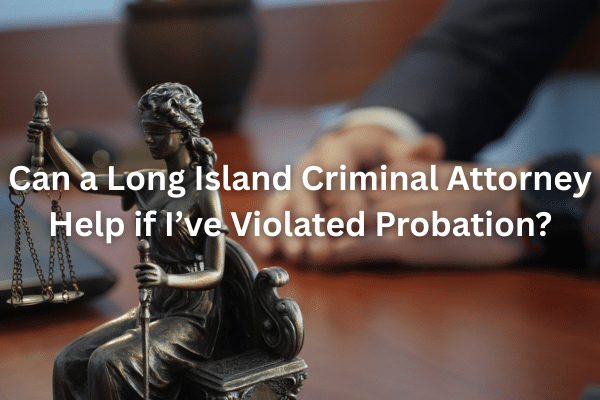

You’ve rebuilt your routine, started a new job, and maybe even begun to relax after the stress of your criminal case—until a single phone call from your probation officer threatens to send everything crashing down. Whether you missed a meeting, failed a drug test, or were arrested on a new charge, a probation violation allegation can instantly place your freedom at risk. I’m Ed Palermo, and for more than thirty years, I’ve helped Long Islanders protect their second chance and avoid harsh penalties when probation terms go sideways. Here’s what you need to know and how a seasoned Long Island criminal attorney can step in before a mistake becomes a catastrophe.
Probation is meant to be an opportunity: you serve part (or all) of your sentence in the community, provided you follow a detailed set of conditions. Those conditions often include regular check-ins, drug or alcohol testing, curfews, employment requirements, and restrictions on travel. In Suffolk and Nassau counties, probation can last anywhere from one to five years for misdemeanors, and up to ten years for certain felonies. A single misstep, however minor it may seem, can trigger a violation hearing and expose you to jail or prison time that was originally suspended.
Once your probation officer files a Violation of Probation (VOP) report, the court can issue a bench warrant. You might be arrested at home, at work, or during a routine traffic stop, and held without bail until your initial hearing. Judges have broad discretion: they can modify your conditions, extend probation, impose additional community service, or revoke probation entirely and order the original jail or prison sentence. The sooner an attorney enters the picture, the more options you’ll have.
Rapid Intervention & Communication
I move quickly to contact the probation officer and the assigned assistant district attorney, gathering details of the alleged violation and advocating for your release pending the hearing. A respectful, cooperative tone—combined with a clear plan to address the issue—often persuades the court that detention is unnecessary.
Building a Record of Compliance
Even when a violation occurred, demonstrating your overall progress is powerful. Pay stubs, counseling attendance, negative test results, and letters of support help counterbalance a single mistake. My team organizes this evidence and presents it in a way that resonates with judges who weigh rehabilitation against punishment.
Crafting Legal & Factual Defenses
Not every allegation holds water. Testing protocols can be flawed; GPS ankle monitors produce false positives; and officers occasionally misinterpret terms. I scrutinize every data point, subpoena lab records if needed, and cross-examine witnesses to expose weak links in the state’s case.
Negotiating Alternatives to Incarceration
Even when the violation is clear, tailored solutions—such as intensified outpatient treatment, electronic home monitoring, or a short “shock” jail weekend—often persuade the bench that revocation is excessive. Decades of local experience mean I know which arguments succeed before particular Long Island judges.
Clients facing probation violations usually arrive at my office anxious and ashamed. I start by listening so I can separate human error from alleged willful defiance. Then I map out a timeline: what must happen in the next 24 hours, the next week, and before the final hearing. Communication is key; you’ll never wonder about the status of your case. I leverage long-standing relationships with probation departments, treatment providers, and court personnel to secure practical, client-centered outcomes that keep life on track.
Will the judge automatically revoke my probation if I test positive once?
No. While a positive test is serious, judges look at your overall compliance record and any steps you take—such as enrolling in treatment—before making a decision.
Can a probation officer recommend jail time?
Yes, but the ultimate decision rests with the judge. A persuasive attorney can counter the officer’s recommendation with evidence of progress and alternative sanctions.
How long does a violation case take?
Simple matters can be resolved in a single hearing, while contested violations with expert testimony may require several weeks to be resolved. Early preparation speeds the process.
Is it worth hiring a lawyer if I’m clearly at fault?
Absolutely. Even when the violation is undeniable, skilled advocacy often reduces—or completely avoids—incarceration.
A probation violation doesn’t have to erase the progress you’ve made. With decisive, experienced representation, you can present the strongest possible case, protect your freedom, and move forward with confidence. If you or a loved one on Long Island has been accused of violating probation, contact my office today. Let’s safeguard the opportunity you worked so hard to earn.